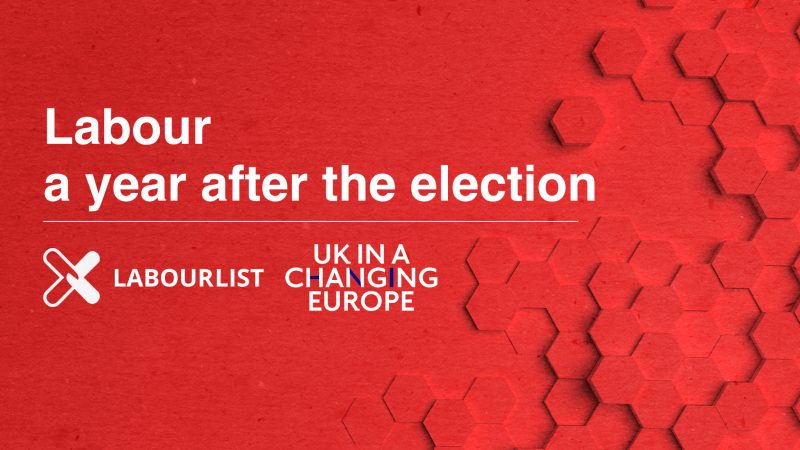
LabourList held our second joint event with The UK in a Changing Europe today on the subject of how far the Labour Party has progressed one year since the 2019 general election and the devastating defeat that gave rise to an 80-seat Tory majority.
Sir John Curtice took the opportunity to explain that there are two alternative explanations for the result last year. The first says Labour’s support crashed among former supporters who voted Leave in 2016, which saw the Conservatives be more successful than Labour among working-class voters. This leads to the conclusion that Labour must “reconnect” with what used to be its core base.
The second interpretation says Labour did not win enough support among Remain voters. Unlike the Conservatives who persuaded 75% of Leave voters to vote for them, Labour only won the support of 45-50% of Remain voters (touching on the failure to win over pro-Remain Scottish voters). This leads to the conclusion that Labour cannot compete with the Tories for the Leave vote and should focus on the Remain vote that already represents around 80% of Labour’s support.
The leading pollster noted that Labour has avoided talking about Brexit as much as possible over the last year, preferring to focus on coronavirus, and that the opposition party is “roughly even-stevens” with the Tories on national vote share. Curtice said an election held now would likely not give the Conservatives enough seats for an overall majority, nor to form another administration. Tory support has dropped particularly among new voters, he said, with 5% of the 2019 Conservative vote now going to Labour and 15% now undecided.
Curtice also observed that Labour has not reconnected with its working-class base. He told the event: “If anything, Labour’s progress in the last 12 months seems to have been stronger amongst middle-class voters than it has been amongst working-class voters. And it’s still trailing the Conservatives amongst working-class voters.”
Looking at Labour’s prospects in elections next year, the political scientist commented that “Scotland at the moment looks like a disaster”, the party is “seemingly holding its own in Wales, but that won’t necessarily be enough for a majority”, and it “hasn’t made enough progress for there to be any guarantee” of advances in English local contests.
Labour frontbencher Lucy Powell highlighted the findings of the Labour Together election review, including that the Tories were better than Labour at mobilising non-voters and that the 2019 defeat had been “a long time coming”. She concluded that Labour must “inspire with a positive agenda” and with an offer of “big economic change” that is “rooted in their place”, and internally that the party needs culture change and should put community organising at the heart of its campaigning efforts.
Streatham MP Bell Ribeiro-Addy argued that constituencies like hers must also be considered ‘Labour heartlands’ and that Labour must be careful that its messaging does not see the party “try to outdo the Tories”. She also emphasised that “people don’t vote for disunited parties”, and shared her view that there will be a general election before 2024.
I outlined how Keir Starmer has managed to quickly change the party internally, from appointing a new general secretary to establishing a working majority on Labour’s ruling body. But I also suggested that there is currently an unnecessary communication vacuum between the leadership and party members that should be addressed over the next year. We then took questions from the audience.
Below is the full recording of our latest live event. Our first event with Rachel Reeves focused on Labour’s Brexit position. The next joint event by LabourList and The UK in a Changing Europe in the new year will explore radical federalism.




More from LabourList
‘Labour won’t stop the far right by changing leaders — only by proving what the left can deliver’
‘Cutting Welsh university funding would be economic vandalism, not reform’
Sadiq Khan signals he will stand for a fourth term as London Mayor